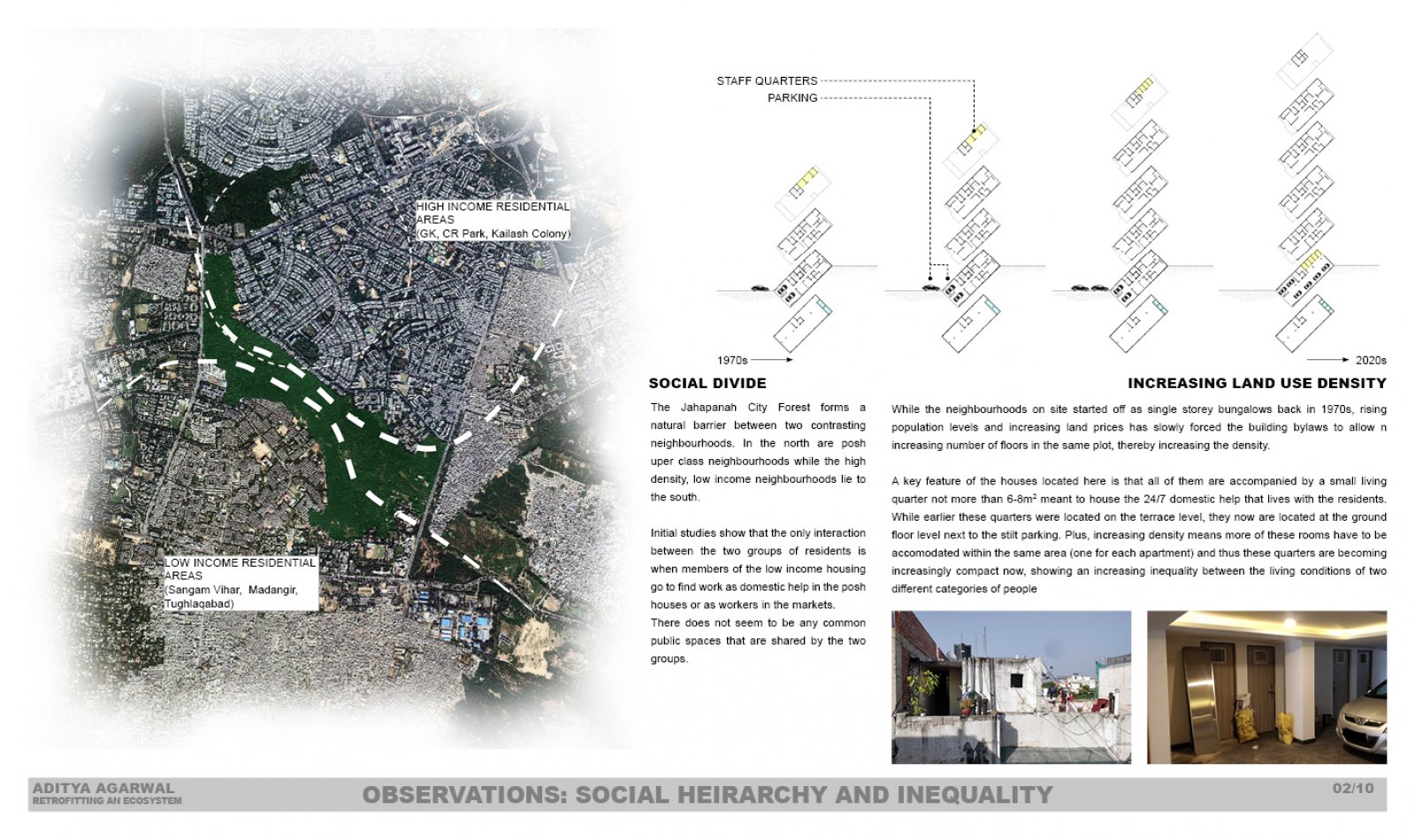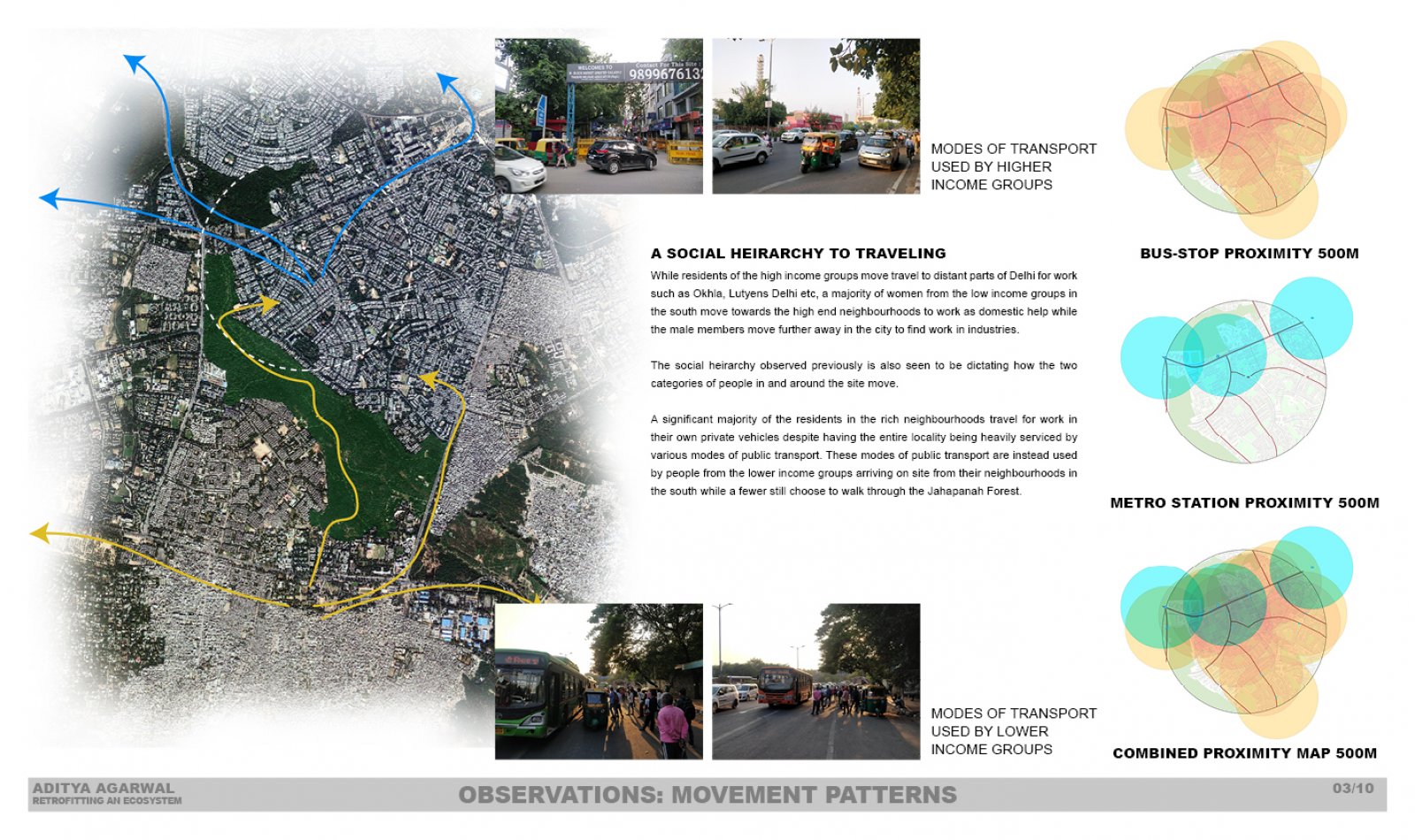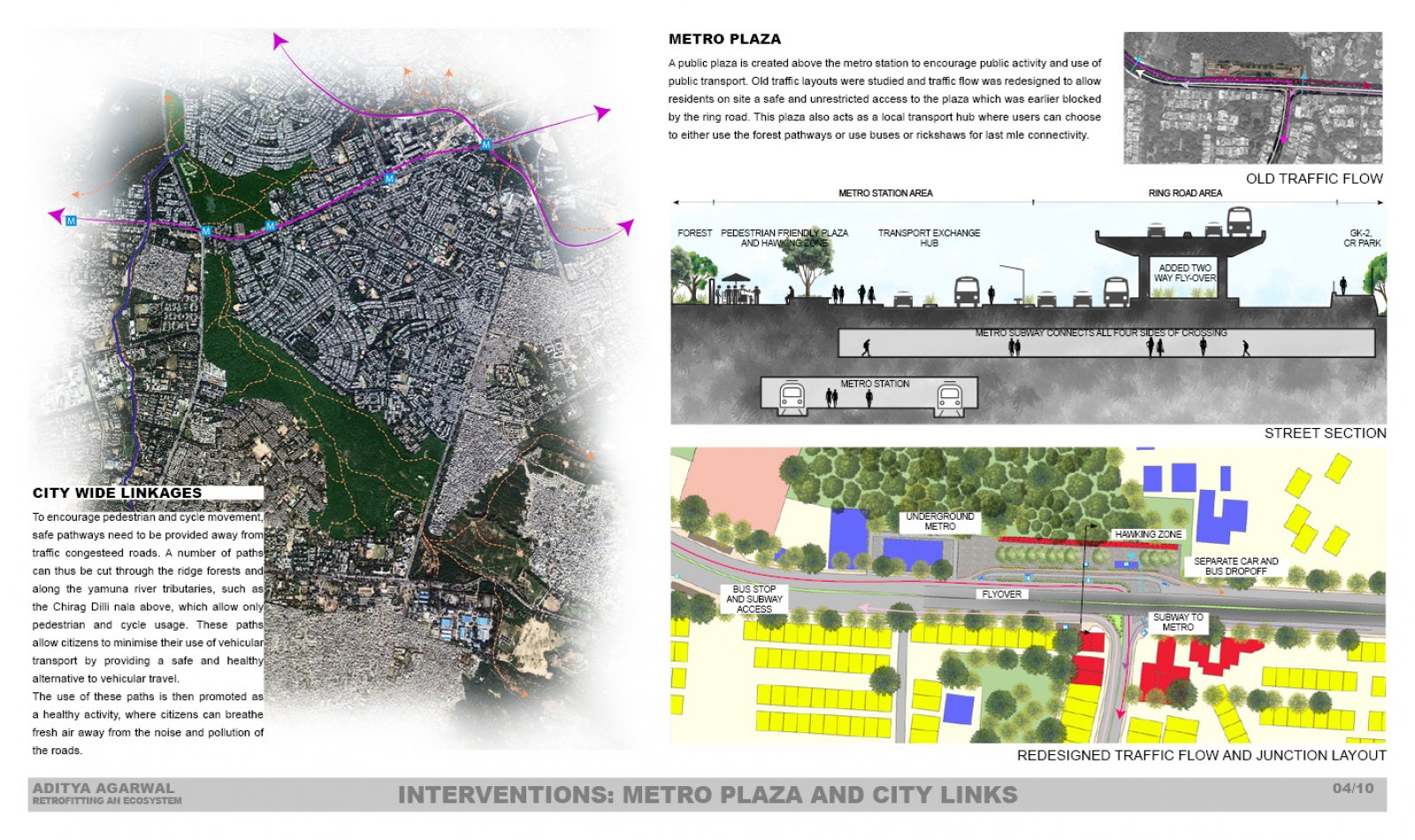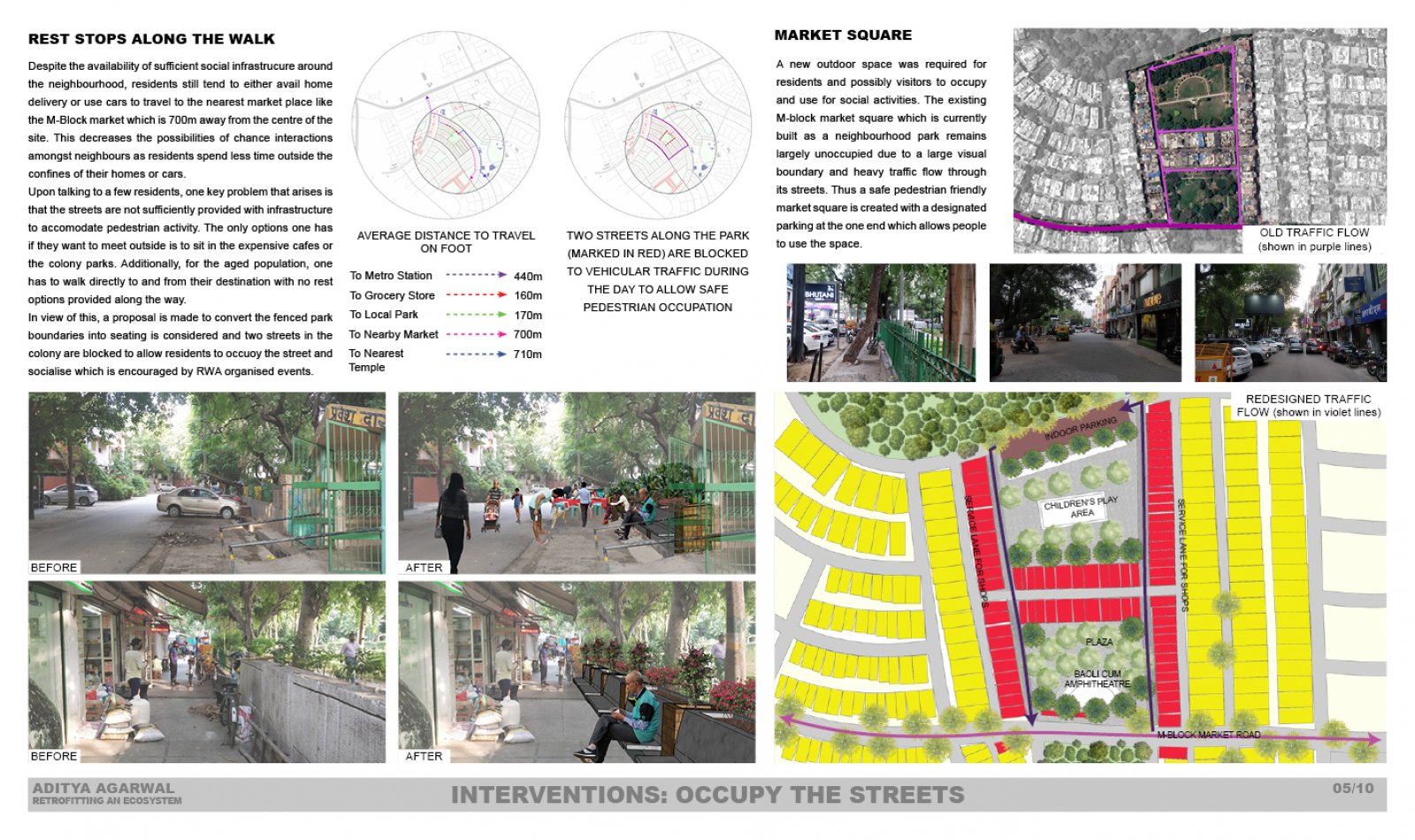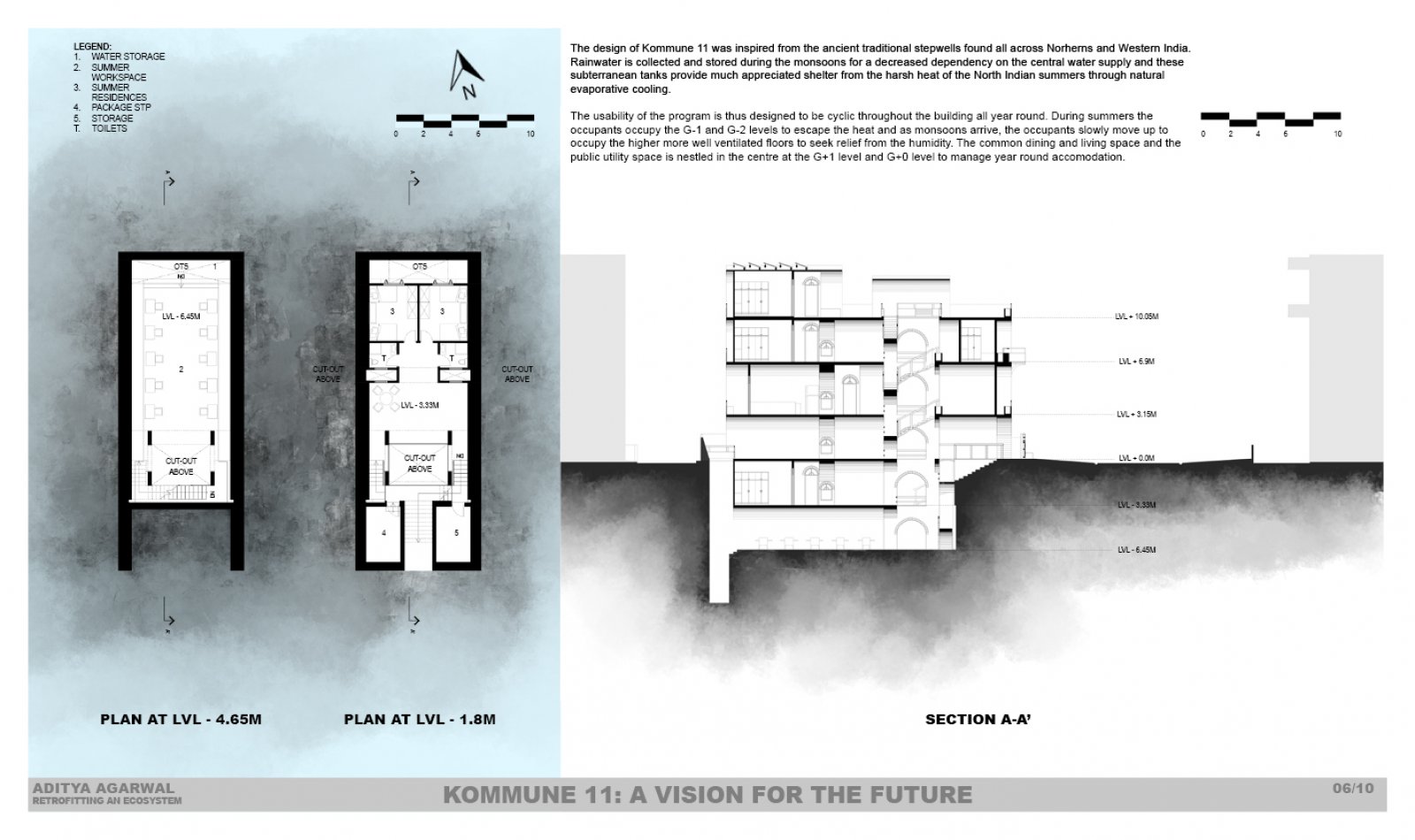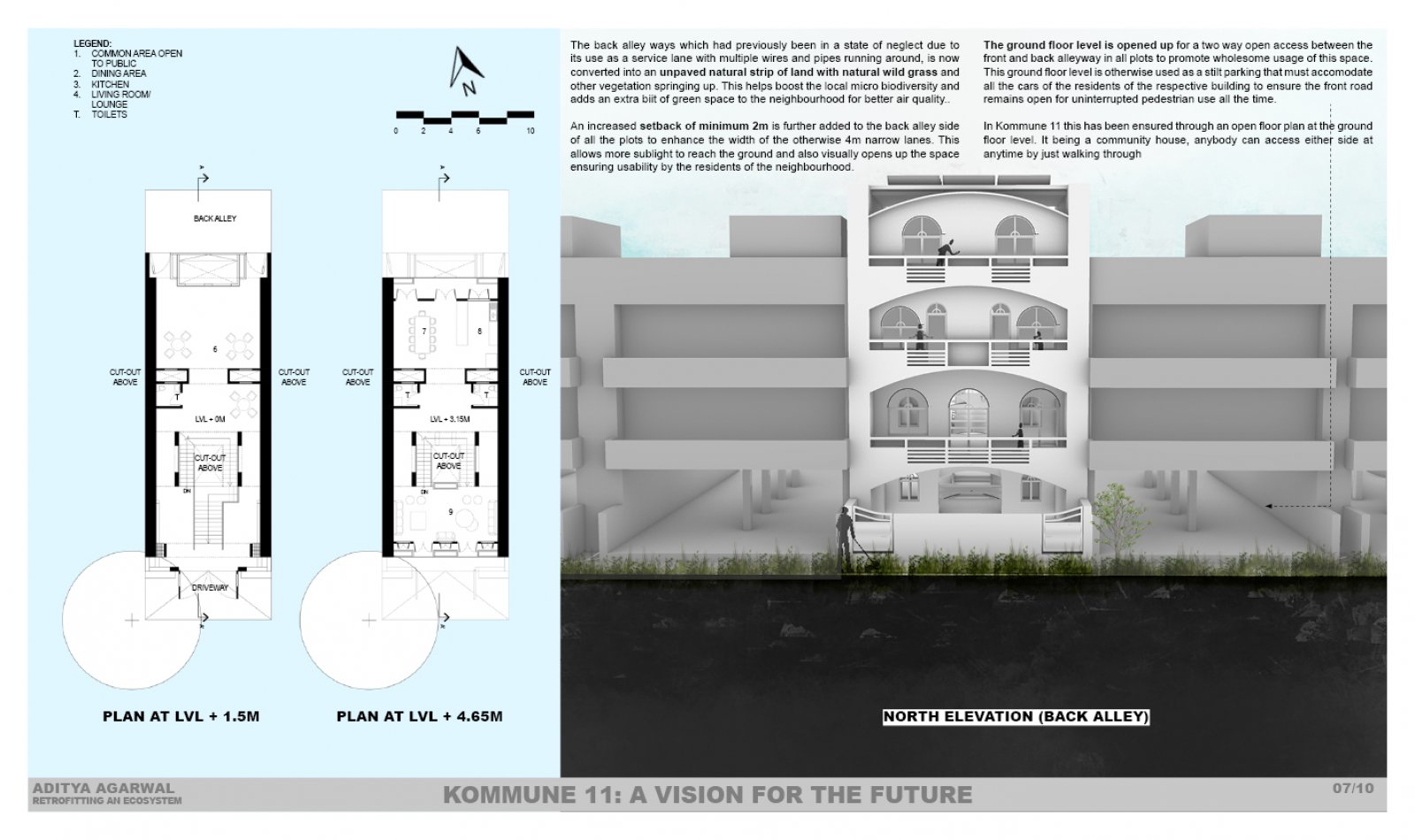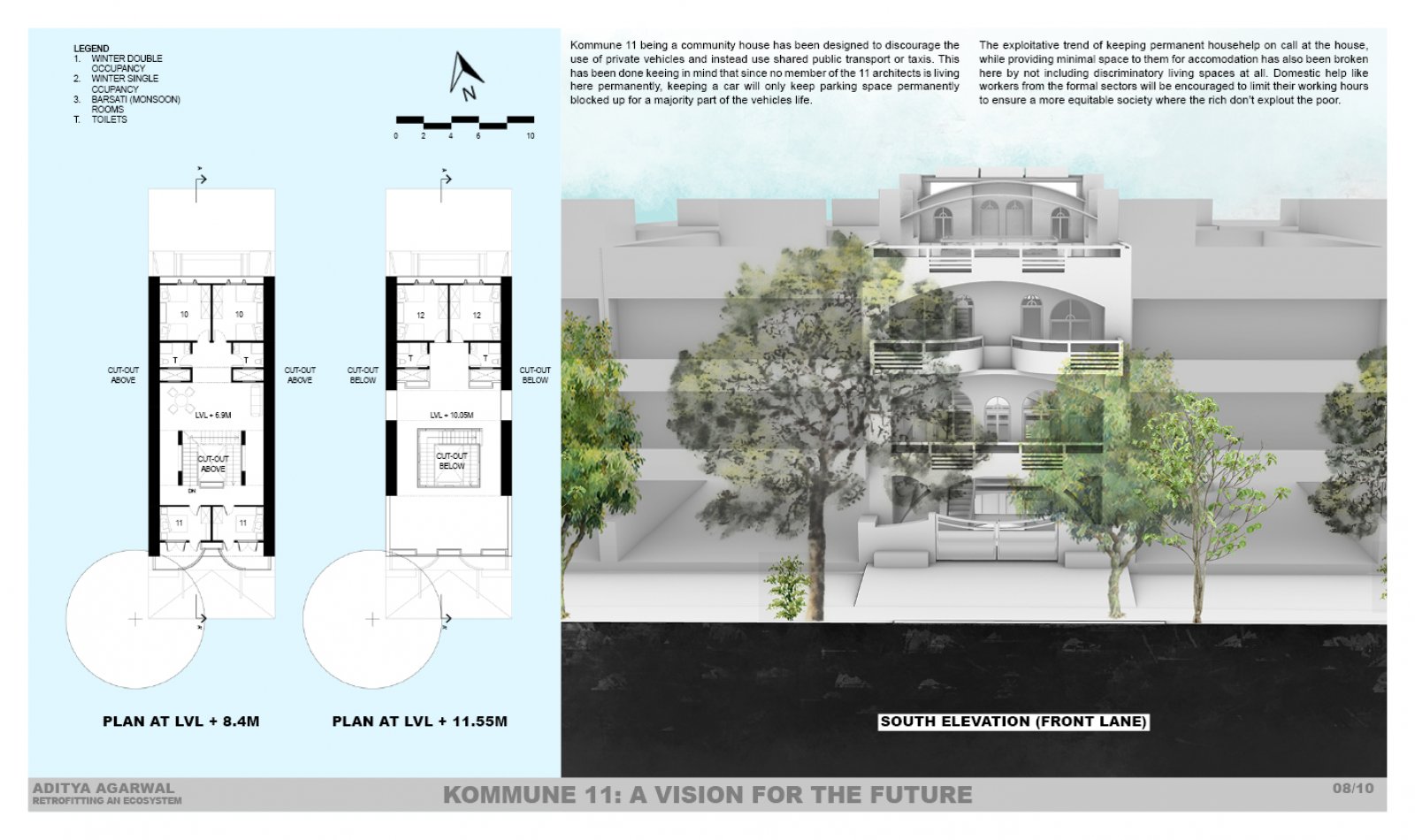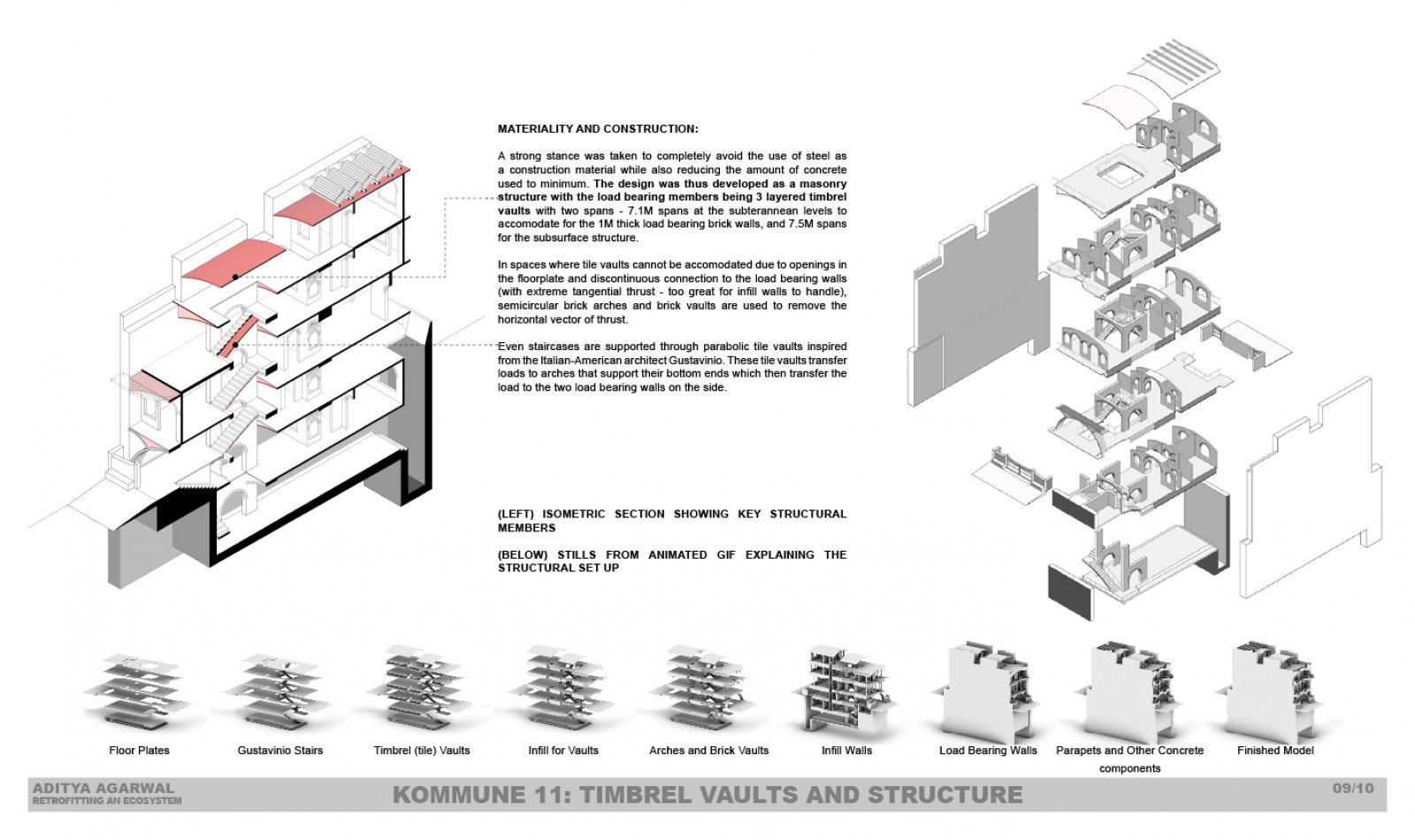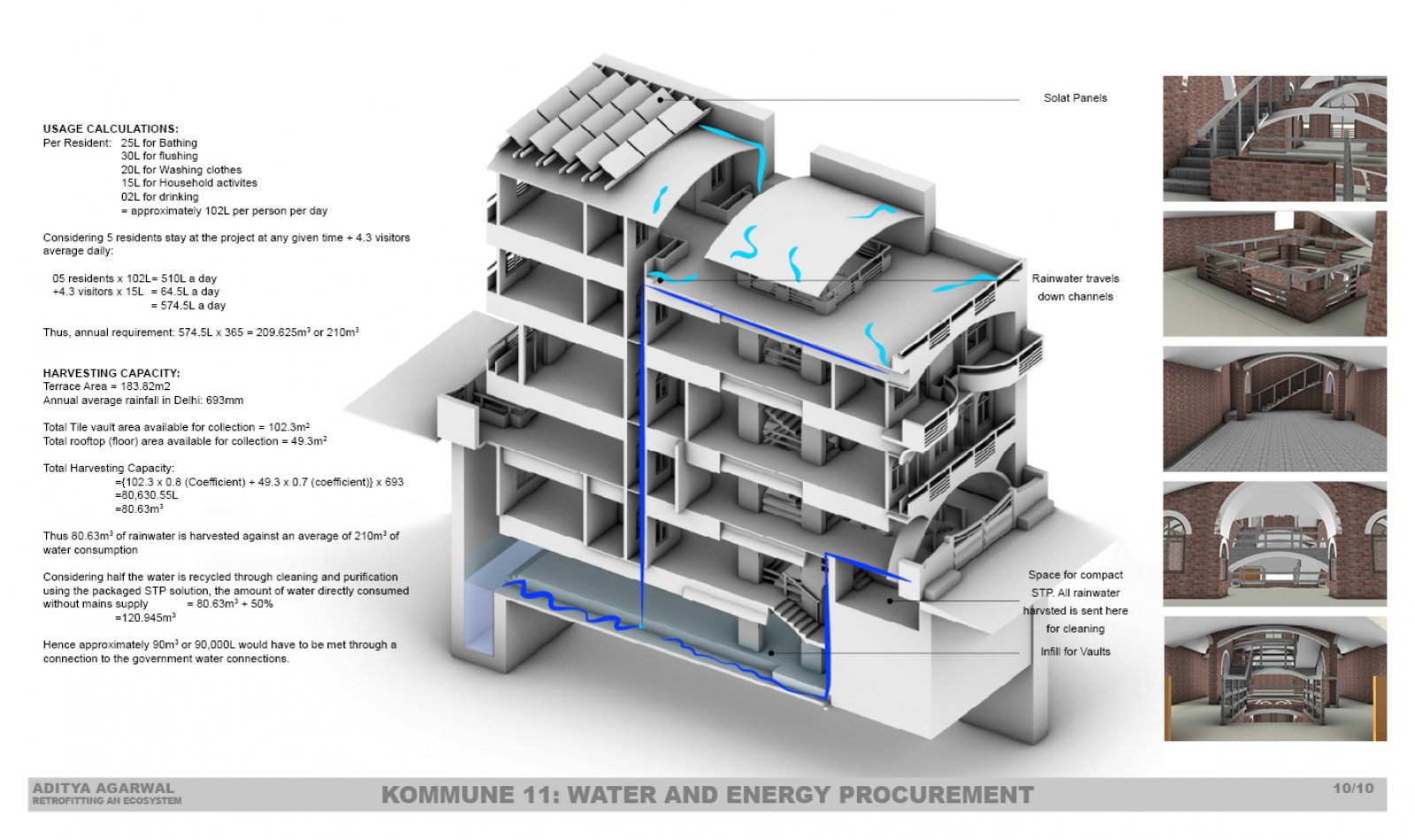KOMMUNE 11
- Student Aditya Agarwal
- Code UA0617
- Faculty Architecture
- Tutor/s Chitra Vishwanath
- TA Juhi Vyas
As cities around the world have grown, most have fallen prey to acute hedonism. With rise in wealth
and social inequality, various economic and sociological studies show the rising hedonistic trends with
no regard for the future. Major metropolitan cities like New Delhi as a result are facing real time
ecological threats in the form of lowering water tables, rising air pollution and as a result, worsening
living health standards. Those who can afford to, are increasingly withdrawing into their safe and
private cocoons, distancing themselves from their immediate society, leading to a loss of social
cohesion and community bonding. This phenomenon has only been accelerated in this pandemicstricken world.
It has thus become important (and urgently so) for designers and policy makers to envision and plan
out a desirable yet sustainable future.
This project is based in the posh southern district of Delhi. This
project aims to tackle the above problems by focusing on them at three (often overlapping) scales –
Public, Local and Private. It seeks to actively reduce vehicular and central grid dependence, increase
walkability, create equitable and inclusive public spaces, and formulate policies that encourage
sustainable living practices among all.

